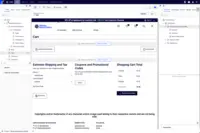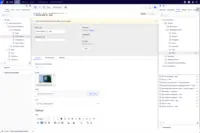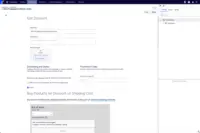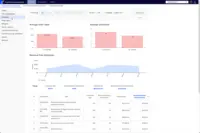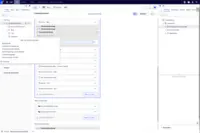Overview
What is Optimizely Customized Commerce?
Optimizely Customized Commerce is a headless PaaS commerce solution built to scale commerce results for enterprise brands.
Recent Reviews
Awards
Products that are considered exceptional by their customers based on a variety of criteria win TrustRadius awards. Learn more about the types of TrustRadius awards to make the best purchase decision. More about TrustRadius Awards
Popular Features
- CMS (25)8.989%
- Website integration (24)8.787%
- Product catalog & listings (25)8.585%
- Product management (25)4.848%
Pricing
Entry-level set up fee?
- Setup fee required
Offerings
- Free Trial
- Free/Freemium Version
- Premium Consulting/Integration Services
Would you like us to let the vendor know that you want pricing?
1 person also want pricing
Alternatives Pricing
Features
Return to navigation
Product Details
- About
- Competitors
- Tech Details
- Downloadables
- FAQs
What is Optimizely Customized Commerce?
Optimizely Customized Commerce is a headless PaaS commerce solution built to scale commerce results for enterprise brands. Customized Commerce is used to:
-Deploy branded headless content and commerce experiences using a single solution to modernize a brand
-Personalize, segment, and target experiences to consumers to maximize engagement and spend
-Leverage multisite capabilities for global brands and or brand expansion
-Use WYSIWYG editors and visual tools to manage enterprise-grade commerce experiences
-Integrate to external systems or compose unique solutions with Optimizely
Optimizely Customized Commerce Features
Online Storefront Features
- Supported: Product catalog & listings
- Supported: Product management
- Supported: Bulk product upload
- Supported: Branding
- Supported: Search & filter
- Supported: Mobile storefront
- Supported: Product variations
- Supported: Subscriptions & downloads
- Supported: Website integration
- Supported: Visual customization
- Supported: CMS
- Supported: Customer service tools
Online Shopping Cart Features
- Supported: Abandoned cart recovery
- Supported: Tax calculator
- Supported: Shipping calculator
- Supported: Integration with Amazon
- Supported: Integration with eBay
- Supported: Checkout user experience
Online Payment System Features
- Supported: PayPal integration
- Supported: Returns & refunds
- Supported: Single-click checkout
- Supported: eCommerce security
- Supported: Credit card transaction fee
- Supported: B2B features
eCommerce Marketing Features
- Supported: Promotions & discounts
- Supported: Personalized recommendations
- Supported: SEO
- Supported: Product reviews
- Supported: Social commerce integration
- Supported: Customer registration
eCommerce Business Management Features
- Supported: Multi-site management
- Supported: Order processing
- Supported: Inventory management
- Supported: Accounting
- Supported: Shipping
- Supported: Custom functionality
Optimizely Customized Commerce Screenshots
Optimizely Customized Commerce Competitors
Optimizely Customized Commerce Technical Details
| Deployment Types | On-premise |
|---|---|
| Operating Systems | Windows, Linux |
| Mobile Application | Apple iOS, Android |
Optimizely Customized Commerce Downloadables
Frequently Asked Questions
Optimizely Customized Commerce is a headless PaaS commerce solution built to scale commerce results for enterprise brands.
BigCommerce, Adobe Commerce (Magento Commerce), and Salesforce Commerce Cloud are common alternatives for Optimizely Customized Commerce.
Reviewers rate CMS highest, with a score of 8.9.
The most common users of Optimizely Customized Commerce are from Mid-sized Companies (51-1,000 employees).

